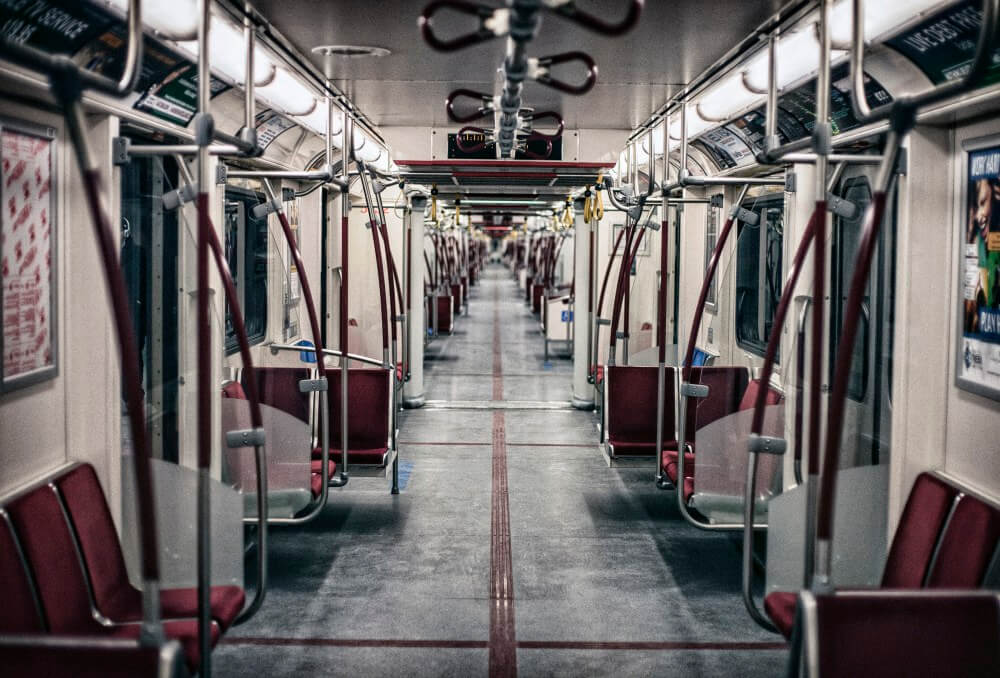Do you find yourself thinking, “I have no Friends Anymore!” While that can make you feel lonely and desperate, it can definitely be solved. First, you need to know why you have no friends, and what to do to make new friends and build a social life. Lacking friends can feel very bad, but you can do something about it.
In this article, let’s explore why you ended up in that state of having no friends, and a few strategies to get you out of it. The key here is to know that your mind and habits are probably not helping and maybe have contributed to the facts of not having friends. Let’s get started…
Why You Have No Friends – Once You Understand That, You Can Do Something About It
There Are Many obstacles that can lead us to not having friends. Some of them are logistical (like where you live) and others are emotional and intellectual.
1. Lack of emotional or social intelligence
Emotions are like glue between people. In friendship, if you don’t have a sense of other people’s emotional state, you come off as “out of step.”
Those out of step moments make people doubt whether you understand where they’re coming from. Sure, you might understand the logic of what they say/do, but that’s not enough.
Emotional illiteracy becomes a challenge if you have developed a habit of not paying attention to others’ facial expressions, tone of voice, and body language.
The first thing to do is pay attention. Always be looking at others’ movements, facial expressions, choice of words, etc. (Without too much staring, obviously) When people talk to you, try to see beyond the logic; try to figure out the “why” behind their decisions.
You don’t have to master this right away. The most important thing is that you start paying attention to others ASAP.
“Awareness creates its own momentum” – Stephen Covey
The most important thing here is that you’re aware of the importance of being able to put yourself in the other person’s position.
People want to spend time with those who can understand and relate to them. If you can understand the logic, but not the emotions and motives, then you’re missing out. If you’re not very good at emotional intelligence then it’s likely to contribute to your lack of friends.
2. Your environment can hurt (or help) your chances of having the right friends

Another thing that could be blocking you from having the social life you want is the environment you live in.
As much as we like to believe that we’re in control of our lives, the people and circumstances around us still greatly influence us.
Here are some examples of factors that could be influencing you toward having a poor social life:
- You live in a small town where people have little or no social activities
- You live with people that are too lazy to maintain a social life
- Your family members tend to be loners, which makes you feel unnatural about socializing and meeting people
- You’re in a relationship with someone who isn’t interested in building a social life
- Everyone around you is hooked on social media, and is more interested in building an online profile than a real social life
- Your old pals never want to do anything interesting you suggest
- You work at a place where people only focus on work, and the most respected ones have no social life: this can happen to lawyers, doctors, people in large corporations, or call-centers, etc.
I remember when my sister worked in a big corporation where people lamented that they didn’t even have time to talk to their children, let alone be able to socialize. Some of them took pride in how many weekends they sacrificed in the name of work.
If you live in an environment that discourages you from building your social life, then don’t be surprised if you find yourself going with the tide.
It’s not that easy to overcome this “environmental challenge;” it’s not like you’re going to move to a more interesting city or quit your job right away.
I mention this here, so you know what you’re up against. As I said before, awareness is the first step.
Your environment can contribute to your lack of friends, but you can do something to change that.
When you know that the challenge is larger than you thought, you can at least do something about it. If you don’t know, you would be like a fish swimming in the ocean, not knowing that the ocean even exists.
What you can do here is to shift your mindset. Decide that you’re going to “rebel” against the environment, and get the friends you want anyway.
Don’t talk too much about the progress in your social life, until it becomes obvious to everyone.
Prepare silently, and apply what you learn from my book, knowing that you’re going against your environment.
The key skill here is flexibility and resolve.
For example, you can’t be too specific in terms of which kinds of people you want to meet, if you live in a smaller town. But if that’s enough to get you to give up, that’s just sad. You should strive to be more determined than that.

If your environment is sabotaging you, you will have to use many of the techniques you’ll learn from my book, many times, in many situations, and see what sticks. You need to find what works in spite of the odds.
You need to be prepared to go out of your way to make friends and build a social life.
The more your environment is “stacked against your social life,” the more preparation and creativity you’ll need to use.
At the same time, be careful not to reveal too much about your plans on building a new social life. Some people in your environment are too comfortable with you just as you are now. They don’t want you to change, and may even doubt and/or sabotage your progress.
They’re not evil or anything; they just get worried you’ll become too powerful and leave them behind.
I’ve seen people have their girlfriend, boyfriend, or family members sabotage their efforts… so be gentle, don’t make people around you think that you’re going to totally change and abandon them.
3. Lack of Social Habits

Now, let’s talk about another challenge, within yourself: your habits.
Habits are like rivers; they’re hard to stop, but you can influence their direction.
If you look at your life right now, you might see that you have developed some loner habits. Please don’t beat yourself over it, I’ve had them all, and gotten over them. It’s not time to get negative about your habits, the outcome here is just to notice and accept, so you can change.
Some basic examples…
- Staying home on weekends
- Not celebrating your birthdays
- Procrastinating to call people, and losing touch
- Saying “no” when people suggest plans
- Never suggesting plans to anyone to avoid rejection altogether
These are “okay” things to have in your life; many people have them. But, as you learn to build a social life, you need to notice that you have done things like that so much, that you’re going to feel awkward about behaving in a new way.
That’s very natural; your “comfort zone” is not evil, it’s just your comfort zone! Now, it’s time to explore safely outside of it.
You wonder how a social life could ‘fit’ in your life; you wonder where you should start, whether you’ll have time, whether you’ll make a million mistakes and embarrass yourself, whether everyone will notice your lack of social skills…
In addition, you start to wonder, where should you go out? How often? With whom? Do you have to change your wardrobe? You even start to wonder whether others will notice that you’re starting from scratch and that you don’t have a social circle already…
I suggest you don’t take these worries too seriously, and don’t let them overwhelm you. As long as you can keep learning, you will overcome each and every one.
Each time you have anxiety, there is a skill that you need to learn. It’s an important lesson; when you have a goal that is way bigger than your skills, you just need a new skill.
4. The trap that can get you to stop even trying to have friends: Discouragement

Another thing that can confuse and/or demotivate you is the inability to know if you’re making progress on your social life.
I mean, you can motivate yourself to go out, meet some new people, and then come home. After a few weeks, it can get hard to tell if your social life and social skills are getting better. I mean imagine that the people you met recently are busy and can’t meet you again; does it mean you failed?
As you go through my book, you’ll learn what is possible for you, determine what your ideal social life looks like, and what you need to do to get there.
After that, make sure to check back on yourself periodically, maybe once a month, to see if you’re making progress. You do that by comparing where you are with your social life to where you started, and where you want to end up.
5. No Clear Goals = No Focus

You could be preventing yourself from having the social life you want by not tapping into the power of specific goals. I suggest that you get a little more specific about what you want your social life to be like.
You’ll eventually learn from us to do things that you didn’t think were possible, but it’s good to prepare your mind by writing what you want.
- Which kind of friends do you want?
- What if lack of friends or having no friends weren’t possible?
- What type of activities would you want to engage in with the friends you want?
- How frequently do you want to socialize?
- And how many (very) good friends do you want?
Forget about being “realistic” for a second, and think about what kinds of friends you want in your life, what experiences you want to have with them, what your birthdays, holidays, and vacations would look like, and how you would feel as a result.
Put An End To Loneliness & Lack Of Friends
If you build your social confidence, you can go a long way to build your social life. The way to do that, is to acquire Social Competence.
Some people learn to make friends as they’re growing up. The trouble is that making friends as an adult is very different from doing it as a kid. This is why we need to re-learn friendship.
In my eBook, Get The Friends You Want, I share with you the most tried and true techniques and shortcuts to building friendships faster.
See you there!
– Paul Sanders
